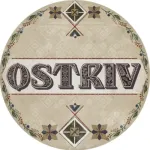Google Revolutionizes Language Learning with AI-Powered Experiments
April 30, 2025

In a groundbreaking move to enhance language learning, Google has unveiled three innovative AI-driven experiments. These initiatives aim to make language acquisition more personalized and context-specific, possibly positioning Google as a competitor to established platforms like Duolingo. Utilizing its advanced Gemini AI model, Google seeks to address common challenges faced by language learners, offering solutions that adapt to real-world situations. These experiments, while in their early stages, promise to transform how learners engage with new languages, making the process more intuitive and relatable.
The first of these experiments focuses on equipping learners with the ability to quickly master phrases relevant to specific scenarios they encounter. Imagine being in an unfamiliar city and needing to ask about reclaiming a lost passport. With the "Tiny Lesson" experiment, users can describe such situations to receive tailored vocabulary and grammar recommendations. This feature not only provides key phrases but also offers suggested responses to potential questions, making it a practical tool for travelers and expatriates alike.
Another exciting aspect of Google's initiative is its effort to bridge the gap between formal language learning and everyday conversational speech. Many language learners find themselves speaking in overly formal tones, detached from local nuances and slang. Google's "Slang Hang" experiment addresses this by simulating real-life conversations between native speakers. Through this tool, learners can immerse themselves in dialogues that reflect local slang and casual speech. Whether it’s understanding the chatter between a street vendor and a customer or the emotional reunion of old friends on public transit, this experiment provides valuable insights into how people naturally communicate.
The third experiment, "Word Cam," leverages the power of AI to help learners expand their vocabulary using their surroundings. This interactive feature allows users to take photos of the environment, with Gemini identifying and labeling objects in the target language. It highlights the breadth of vocabulary that remains unexplored, revealing gaps in knowledge through everyday items. For instance, while one might be familiar with the word "window," terms like "blinds" may be less known, showcasing the richness of language that awaits discovery.
Google's trio of AI experiments represents a significant advancement in the realm of language learning, offering highly personalized and context-rich tools. By integrating real-world applicability, conversational authenticity, and interactive engagement, these tools pave the way for a more dynamic learning experience. Although they are still in the experimental phase, the potential impact on self-directed language acquisition is undeniable. As Google's AI-driven solutions continue to evolve, they may well redefine the future of language education, making it more accessible, practical, and engaging for learners across the globe.











Leave a comment
Your comment is awaiting moderation. We save your draft here
0 Comments